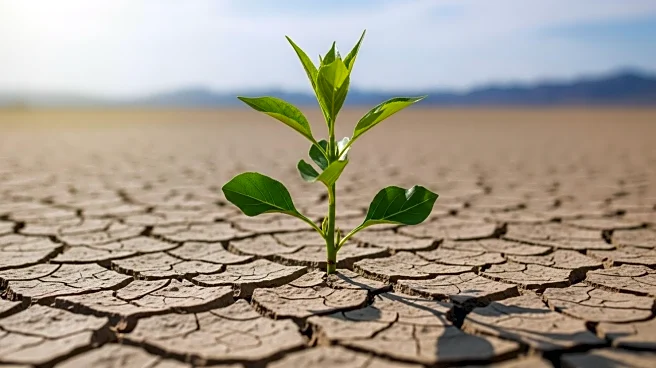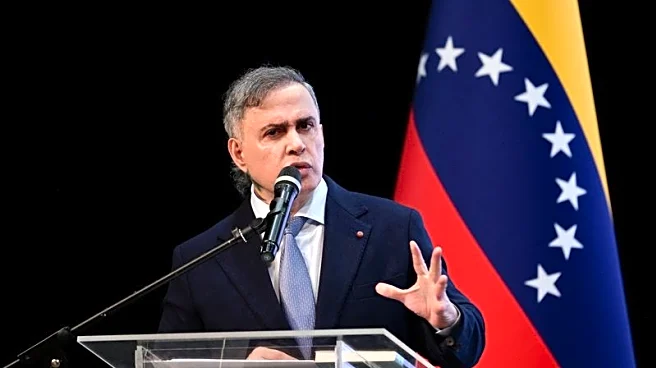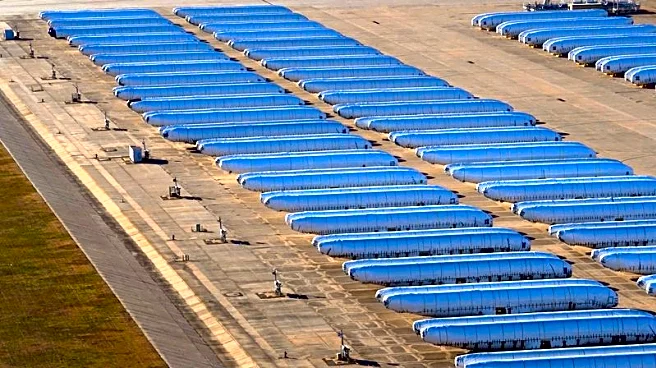What's Happening?
A group of young climate activists has filed a petition with the Inter-American Commission on Human Rights, accusing the United States of violating international human rights laws by supporting a fossil fuel-based energy system. The petition, shared exclusively with The Guardian, argues that the US government's actions over the past 50 years have constituted an internationally wrongful act, implicating its international responsibility. The petitioners, many of whom were involved in the Juliana v US lawsuit, claim that the US has knowingly protected fossil fuel interests, thereby putting people, especially young people, in harm's way. The filing comes after advisory opinions from international courts highlighting the extraordinary risks posed by the climate crisis, particularly to vulnerable populations.
Why It's Important?
The petition underscores the growing tension between environmental advocacy groups and government policies that prioritize fossil fuel interests. By bringing the case to an international human rights body, the activists aim to hold the US accountable for its environmental policies, which they argue infringe upon their rights to life, health, and security. This move could set a precedent for how international bodies address climate-related human rights violations, potentially influencing future policy decisions. The petition also highlights the broader implications of climate change on human rights, emphasizing the need for urgent action to protect vulnerable populations from its impacts.
What's Next?
The petitioners are seeking precautionary measures to protect their rights and a public hearing to present their evidence. If the Inter-American Commission on Human Rights issues strong recommendations, it could pressure the US to reconsider its fossil fuel policies. However, the commission's recommendations are not legally binding, and the current administration may not be compelled to act. The activists hope that future administrations might be more receptive to international pressure and take steps to address the climate crisis. The outcome of this petition could influence environmental policy across the Americas, setting a legal precedent for holding governments accountable for climate-related human rights violations.
Beyond the Headlines
The petition raises ethical questions about the responsibility of governments to protect their citizens from environmental harm. It challenges the notion that economic interests should take precedence over human rights and environmental protection. The case also highlights the role of young activists in driving change and holding governments accountable for their actions. As climate change continues to impact communities worldwide, the petition serves as a reminder of the urgent need for systemic change to ensure a sustainable future.











